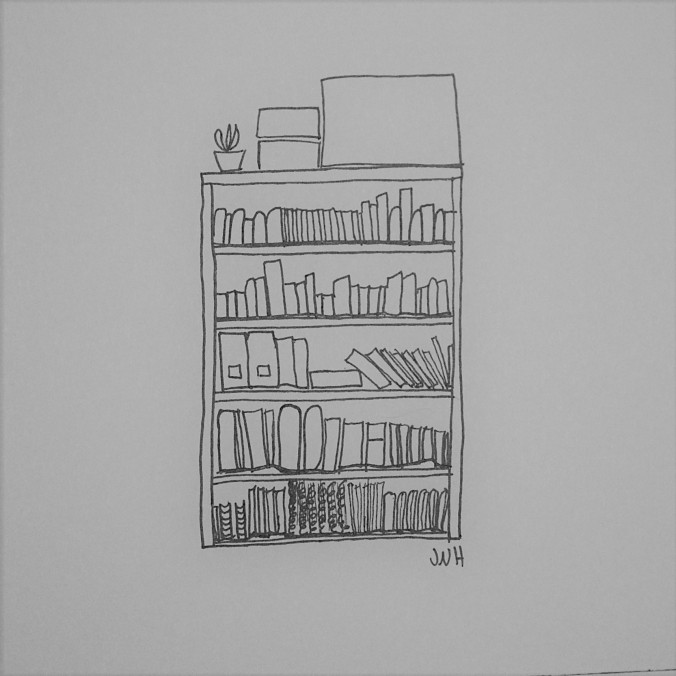
As a child, if I stayed at my aunt and uncle’s house for more than a few hours, I would inevitably wind up in my cousin’s room. Once there, I’d go straight to her bookshelf and begin reading the bindings of her collection, pulling the titles that intrigued me, and running my fingers along the covers of some of her best-loved volumes.
“You can borrow that, if you’d like.” she’d say. Usually, I would shake my head, but I always looked at the shelf, just in case I’d missed something the last time. Thus, I discovered the wonder of scanning other people’s bookshelves.
I read somewhere that you can learn a lot about a person’s character by the books they choose to keep. I don’t believe horoscopes, and I’m more skeptical than the average Christian female about the accuracy of the enneagram, but bookshelves? That’s a snap judgement personality test that I can get behind.
I see the proof everywhere. One friend’s shelves practically explode with colorful bindings and quirky titles, the perfect expression of her bright and inquisitive mind. When another friend gushes over finding copies of books she’s read before, I smile because it reminds me of her loyalty, kindness, and the impressive fact that she’s memorized a movie quote for practically every situation. As I look at my sister’s shelf, I’m inspired by and jealous of her collection of beloved classics, exotic cookbooks, and the box of scarves she uses as a bookend. My list of favorites is not nearly as classy, my cookbooks are more practical than daring, and goodness, I wish I could wear scarves with half the elegance she lends them.
Yes, the books we own tell our stories. I’ve recently begun wondering what my bookshelf says about me. It’s a tangle of notebooks and magazines and bright red cookbooks, devotional titles and knitting patterns and the phrase “Ice Cream.” No cohesive narrative reveals itself to me. I imagine a stranger looking at my shelf, and can almost hear them saying, “Well, it looks like she’s obsessed with food, not great at putting books back where they belong, has far too many notebooks, and rarely reads fiction. BOR-ING.”
Something in me protests this description. What about the books I carry inside me, the stories that continue to shape me in countless ways, or the books I hope to someday read? Why is my shelf devoid of clues about the person I’m becoming, or the person I hope to be?
But who do I hope to be? I’m snot entirely sure, and it’s unreasonable to expect a bookshelf to be more complete than the person compiling it. So, after all, my little collection of reference materials and scribbles is a pretty accurate description of who I am:
A work in progress.
And I’m okay with that.
*For your information, the judgmental stranger in this scenario would be wrong on one count. I read lots of fiction, but it’s usually from the library.